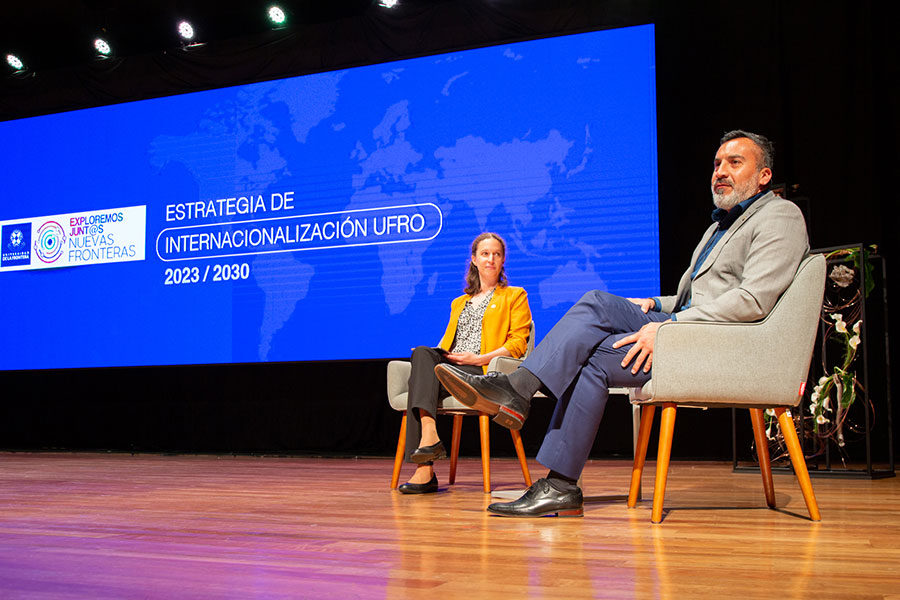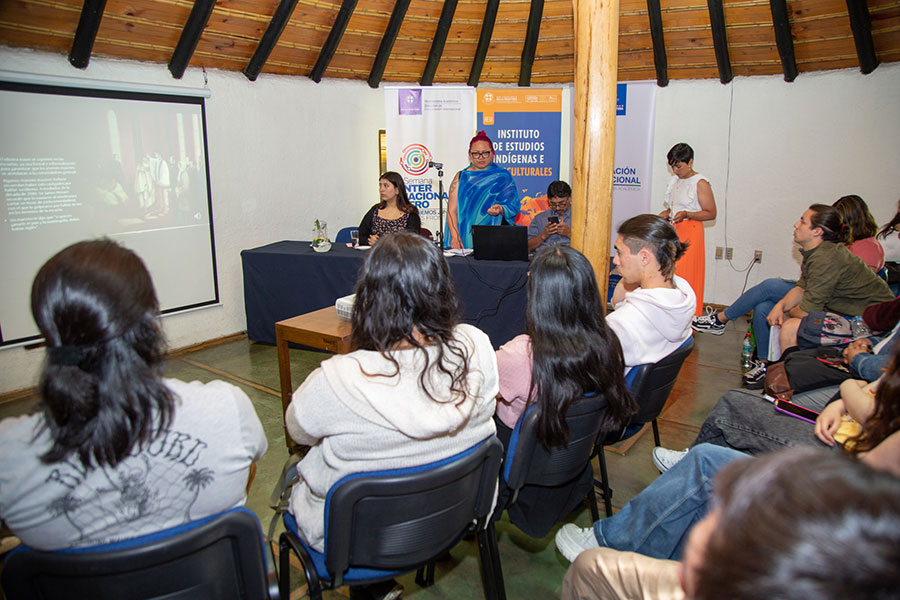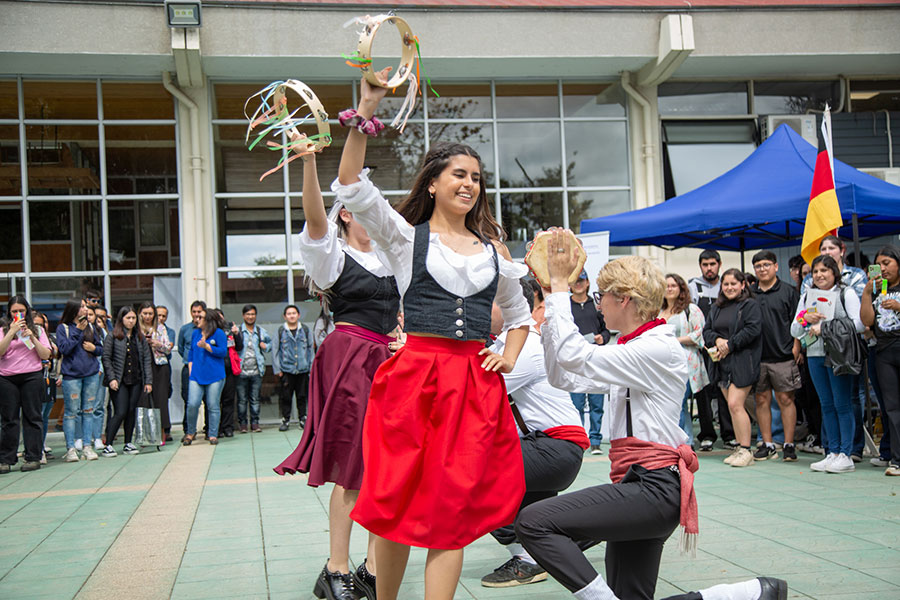|
The first International Week of Universidad de La Frontera brought a high number of participants together in different activities and allowed visualising the internationalisation development of the university. |
“We presented our Internationalisation Strategy UFRO, with which we want to strengthen our partnerships, establish new alliances, connect with other entities and find our common interests in order to grow and keep developing and strengthening our university in the international context,” said Dr. Eduardo Hebel Weiss, the Rector of the Universidad de La Frontera (UFRO), at the inauguration of the International Week UFRO. The event, organised by the Vice-rectorate for Academic Affairs and the International Affairs Office of UFRO, invited the different units and actors to be part of the programme full of activities related to institutional internationalisation. The Vice-rector for Academic Affairs, Dr. Renato Hunter Alarcón, pointed out that UFRO has very strong partnerships throughout the world. “We do have the required vision, effort and dedication to create strong links across our borders and we will keep working on that, promoting respect and support across the nations,” he commented. In this context, he estimates that the 260 agreements in force with 179 different institutions might multiply over the next years, promoting and strengthening the mobility and collaborative work with academics from different countries in Europe, such as the Netherlands, Serbia and Lithuania, etc. INTERNATIONALISATION STRATEGY UFRO In a collaborative effort, the Vice-rectorate for Academic Affairs and the Vice-rectorate for Research and Graduate Studies carried out workshops and training sessions in collaboration with the International Affairs Office and the Office for Innovation and Technology Transfer. In addition, the university established a Commission to work on the guidelines. The new Internationalisation Strategy will support initiatives from 2023 to 2030 in the fields of excellence in graduate studies with an international vision, research and innovation with territorial relevance, internationalisation of the curriculum, and academic mobility. In this context, Dr. Lorena Vieli, the director of the International Affairs Office, pointed out: “With these strategies, we are able to define the role of internationalisation and the participation of the related units and their contributions. The preparation process not only led us to the official Internationalisation Strategy, but also helped us to further develop our skills and capacities.” Franklin Valdebenito Godoy, the director of the Office for Innovation and Technology Transfer, added that the process has been very significant, “because it has allowed us to include the vision of the Vice-rectorates, to have a shared vision and to strengthen different areas. Now, our task is to strengthen the pillars of internationalisation and to drive the work forward”. OPPORTUNITY FAIR One of the activities carried out during the International Week UFRO was the Opportunity Fair with 20 stands with information on study and internship opportunities abroad, academic mobility programmes, as well as international initiatives and organisations. The Vice-rector for Administration and Finances, Jorge Petit-Breuilh Sepúlveda, commented: “Since 2021, we are planning the construction of different infrastructures. We already have three major projects: one has to do with a sustainable campus, another one with a smart campus and the third one is the idea of a Citizens Square to promote the unity and fellowship within the university community.” “Each of these challenges,” he explained, “helps us to develop projects that go in line with standards of sustainability and functionality, and to create physical spaces of encounter and connection that also allow us to position ourselves in the international context.” CULTURE AND ACTIVITIES The programme of the International Week UFRO included talks and international networking opportunities with the participation of national and international guests and student groups, cultural activities, international films, etc. A delegation from the University Te Wānanga in New Zealand participated in a talk about intercultural education that was organized by the Faculty of Education, Social Sciences and Humanities and the Institute for Indigenous and Intercultural Studies of UFRO. At the same time, several other international experts held talks and seminars at the doctoral level, to strengthen the fields of high-impact research and international projects. In addition, the university community had the chance to enjoy the international cinema, the Science Café, and different encounters and learning opportunities. With regard to the internationalisation of the curriculum, the university organised a COIL – Collaborative Online International Learning – workshop to continue strengthening that methodology that allows connecting different programmes and subjects with teachers from all over the world. This activity was organised with the support of the Vice-rectorate for Undergraduate Affairs and the Office of Curricular and Teacher Development. CRUCH MEETING At the same time, within the framework of the first International Week UFRO, the Internationalisation Committee of the Council of Rectors of Chilean Universities (CRUCH) met at UFRO for its plenary session. One of the topics addressed at this meeting was the experience of the University of Göttingen in Germany and the University of Talca in Chile in the project ‘LiveSciences3 - transnational and digital linked life sciences’. Other important parts of the programme of the International Week UFRO were the presentations of DAAD and DAHZ, the celebration of the tenth anniversary of the German-Argentinean University Centre, a discussion on collaboration perspectives and possibilities for Chilean and German universities, and the workshop ‘Internationalisation practices at home: bringing together different world knowledge’. Written and translated by: UFRO Communications Office
|







